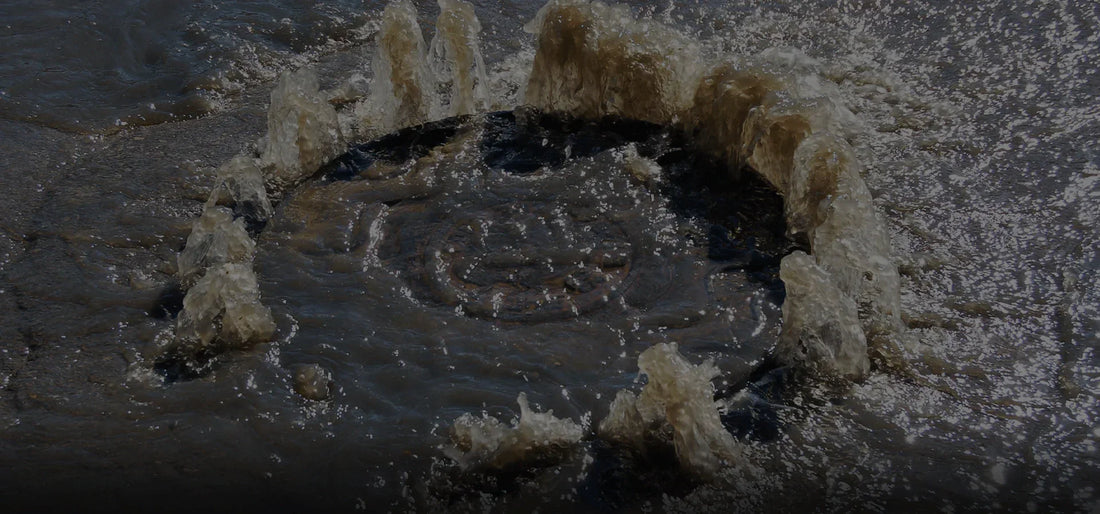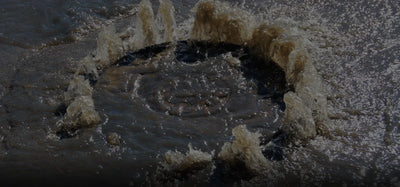Why Do You Need To Maintain Your Septic Tank?

A septic system is a vital but often overlooked component of the building. Septic tanks, which are underground structures used to collect and break down organic waste, are found in a variety of establishments, including residences, hospitals, offices, restaurants, and even public spaces like parks. Yet, most people are rarely aware that a septic tank exists, let alone familiar with how it works! While some of us unintentionally end up disrupting its daily functioning by using chemical decloggers and cleaners or dumping inorganic waste and plastics down the toilet, others forget to tend to it until it's too late. It is crucial to keep your septic tank in good working condition because it filters waste from your home. A neglected septic tank is hazardous to your home and the environment, which is why we must educate ourselves on how it can be maintained with the right measures and solutions. An underground chamber composed of concrete, fibre, or plastic known as a septic tank aids in the treatment of organic waste, including human and kitchen waste. It connects your house to your lawn and drain field with the help of drain pipes. Beneficial bacteria float around in your septic system and break down solids, turning them into liquid waste. When the liquids in the tank reach the drain field, they drain safely into the yard without causing a clog. Because your septic system is underground, it’s often difficult to understand exactly how it functions. Everyday activities like using chemical or acid-based cleaners to clean toilets end up harming the population of the good septic tank bacteria that are responsible for eating the organic matter and breaking down the sludge that’s formed as a result of the faecal waste. If left unnoticed or untreated, this leads to a complete breakdown of the septic system. But your septic tank usually shows symptoms of malfunctioning or failure before it stops working altogether. Watch out for these signs of an unhealthy septic tank in dire need of treatment!
Sewage backflow
Keep an eye out for backflow in your toilet. The sewage coming to the surface around the tank in the drain field or backing up in building pipes is one of the symptoms of a failing septic tank.
Moist soil near your septic tank
Because clogged drains prevent wastewater from entering the septic tank, it overflows into the soil, causing it to become damp and muddy. As a result, sewage will seep into the ground and form a pool near the field. On a sunny day, dampness near the drain field indicates a failing septic tank.
Foul odour
Another sign of a failing septic system is the presence of a strong, unpleasant smell near the drainage system and plumbing equipment. This could be on your lawn or even inside your home. This stench is an indication that the sewage has crossed the drain field and entered your main drain line.
Unusual Growth of Green Grass
Wastewater and manure have the same properties. It contains nitrogen, potassium, phosphorus, and micronutrients, aiding plant growth. When you notice unusually green grass surrounding the drain field, it indicates that the wastewater is leaking into your soil. Keep an eye on your drain field before it becomes a problem.
Clogged Drains
When the septic tank is beginning to clog, many homeowners mistakenly believe that their drainage problems are due to a clog in the pipe. The biggest indication that the problem is the septic tank is if all the lower drains in the house are slow at once. Inorganic items, including plastics, oil, chemicals and sanitary products being flushed down the toilet is a leading cause of a clogged septic tank. Hence, it’s always best to avoid tossing anything that might choke your septic tank, as it will eventually lead to chokeage and backflow seeping back into your homes. How can we prevent this? There are numerous ways to maintain your septic system and stop it from breaking down, including proper water disposal, efficient water use, drain field maintenance, and inspecting and pumping your septic tank at the required frequency. These prolong the life of your septic system. Remember, a healthy septic tank can function for many years with little to no repairs or infrastructural changes!
Here are the four essential reasons why you should maintain your septic tank!
Odour Reduction
A healthy septic tank emits no odour! Unpleasant odours indicate a failing septic tank. The foul smell is from the presence of sewage in the drains, which clogs drain pipes and leads to sludge buildup. Cleaning your septic tank will reduce the odour backflow into your homes.
Protects the environment
Improper maintenance of your septic tank will cause waste to build up and eventually seep into the groundwater, contaminating it. This groundwater may have toxins from sewage that harm the ecosystem, posing an environmental hazard to the community. When your septic tank is routinely maintained, it prevents contamination of groundwater, thereby keeping the environment safe.
Avoids Health Hazards
When contaminated groundwater pollutes the ecosystems, it affects animals and humans. The wastewater can backflow into the drain pipes because groundwater is connected to the drain field, making the water connected to the homes unsafe to drink and posing health risks. People may fall sick, acquire various diseases, and suffer long-term consequences. Thorough maintenance can lessen septic tank failure symptoms, making the house a safer place to live.
Saves Money
Pumping your septic tank depletes your funds. Furthermore, if your septic tank fails, it must be replaced, which is also expensive. Septic tank pumping is a monthly activity that is expensive to undertake. It is both time and money-consuming. Septic tanks are costly, so replacing one will empty your pockets. Regular maintenance of your septic tank can help in saving money.
Preserves your drain field
Drain field flooding can result from an overloaded septic system. Your drain fields can no longer hold excess wastewater and will release it into the soil, increasing soil saturation. The soil will then crawl to the surface, forming water bubbles. Over time, it can cause flooding and sinkholes in your yard. Septic tank maintenance is complex as the repairs and replacement are expensive. We wanted to help our users overcome this issue with an effective and eco-friendly solution. After years of research, we developed Bioclean Septic and Bioclean Septic Plus, which consists of microbes that produce enzymes that degrade all the organic matter in the septic tank. It also prevents the accumulation of sludge, fat, and oil and the growth of pathogens. It is completely natural, resistant to harmful chemicals and eliminates bacteria growth, thereby curbing foul smell and helping you keep your space happy, clean and safe!




